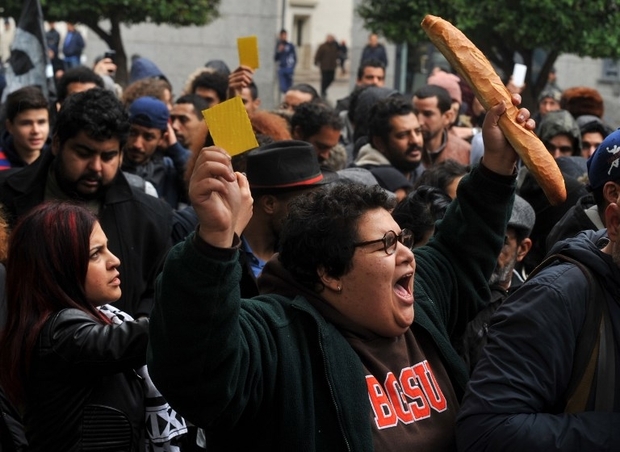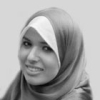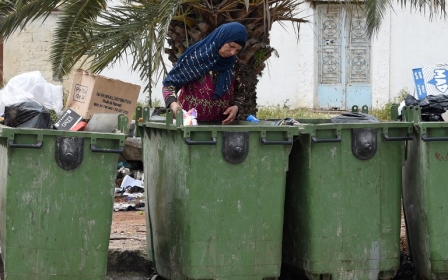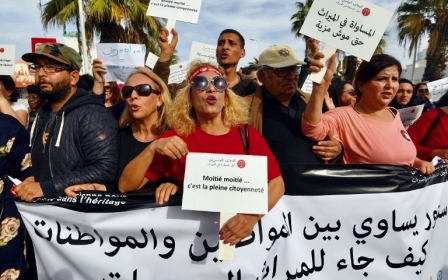Tunisia's local elections can be the start of real democratic politics

For the past seven years, Tunisians have lived in an anomaly. Having toppled the Ben Ali regime and held three democratic elections, they have been unable to elect their local politicians, who have historically been appointed by the prime minister and the central government in Tunis.
That is set to change on Sunday when millions of Tunisians go to the polls and have the chance to vote between 2,074 candidate lists in 350 different municipalities. Yet amidst widespread reports of a low voter turnout by the international media, there is a bigger story here that many are missing.
These elections, having been postponed for four times in the past three years, promise to be the start of real democratic politics in Tunisia. The more than 57,000 candidates who have put themselves forward – 49% of them women and over half of them under 35 – are a good indicator of that.
The election of over 7,200 elected representatives is a democratic milestone in itself, putting in place a new set of elected institutions that can guard against authoritarian backslide, which we have seen happen in other countries in the region.
All parties have struggled to move from being defenders of identities towards providers of solutions to real problems.
Even more important, the elections promise to revolutionise the political map in two ways.
Up until now, Tunisians have had the chance to vote for 217 members of parliament and a president, who all carry on their political business in Tunis. Politics and political parties are all centralised – those involved are more or less disinterested in local affairs, preoccupied instead with national issues and waging national political battles.
Most of the 15 parties in parliament have weak local bases, demonstrated by the fact that most of them could not manage to field candidates in more than a fifth of municipalities.
Policies not ideologies
By forcing parties to focus on the local level and providing concrete solutions to daily problems, these elections may lead to the emergence of real political parties in Tunisia. Up until now, most parties have continued to operate by ideology rather than policy ideas or solutions.
The ideologies represented by the three leading Tunisian political families dominate politics – Islamic doctrine posed by Ennahdha; statist, nationalist ideology represented by Nidaa Tounes; left-wing secularist ideology represented by the Front Populaire and Machrou Tounes – but without really translating into concrete policies that touch people's lives.
All parties have struggled to move from being defenders of identities (whether Islamic, national or secular) towards providers of solutions to real problems.
This is one of the leading factors that has put people off politics in recent years. Opposition parties like the far-left Front Populaire continue to act like protest groups, opposing every government policy without offering any solutions of their own. Governing parties work more like firefighters than policy-makers, trying to manage multiple economic and social crises rather than resolving them.
Local politics may just provide a way out of this quagmire. Local governance is about solving concrete day-to-day problems rather than the ideology wars that many parties prefer to wage.
If you ask any ordinary Tunisian in the street about what they want their elected representatives to do, the chances are, many of their priorities will be local – clean up the streets, provide street lighting, improve necessary infrastructures like roads and sanitation.
Something far removed from the polarising and often manufactured debates around cultural or identity questions.
Having elected municipal councils whose responsibility is to focus on these small-scale but essential policy issues will force parties to focus on the small details of creating policy solutions to real problems.
A new political wave
Local elections also promise to renew the political class by bringing in a new generation of politicians – 7,206 to be exact. Not only are many candidates young and female, but candidates with disabilities, previously excluded from political life, also head 18 electoral lists.
Most of these candidates have previously never had anything to do with politics. Throughout dozens of candidate debates and events, I've noticed that most candidates represent a distinctly new style of "independent" politics. As one candidate told me: "I'm on a party list, but I'm here because I want to do what's best for my area, not to serve any party. I'm willing to work with everyone in my area, whatever their party."
Of course, enormous challenges face the incoming municipal councils. Most municipalities face budget deficits and spend over 80% of their budgets on fixed costs, leaving little for local investment. They are hugely understaffed, and only 10% of local personnel have university qualifications or technical skills.
Corruption remains a significant issue, contributing to citizens' mistrust of local authorities. Initiatives to involve citizens in decision-making have had some success, but most of the public remains disinterested and sceptical that anything will change. A low voter turnout on Sunday would weaken the legitimacy of the incoming councils.
Nevertheless, the diversity and energy of the thousands of candidates give hope. The emergence of a new wave of political representatives with interest in local affairs may help break down the political barriers that have mired politics in ideological battles that have little meaning for ordinary citizens – one of the factors for turning people off politics altogether.
It may also point the way to finding realistic solutions to Tunisia's vast array of challenges by giving political representatives the chance to govern and grapple with finding small-scale policy solutions to local-level problems – solutions that may be scalable to the national level.
- Intissar Kherigi is a Tunisian-British researcher and PhD student at Sciences Po Paris in Comparative Political Sociology. She holds a BA in Law from Kings College, Cambridge University and a Masters in Human Rights from the London School of Economics and Political Science. She is a qualified solicitor and has worked in the UK House of Lords, the United Nations and the European Parliament.
The views expressed in this article belong to the author and do not necessarily reflect the editorial policy of Middle East Eye
Photo: Tunisians protesting against the increasing cost of bread in Tunis (AFP).
This article is available on Middle East Eye French edition.
New MEE newsletter: Jerusalem Dispatch
Sign up to get the latest insights and analysis on Israel-Palestine, alongside Turkey Unpacked and other MEE newsletters
Middle East Eye delivers independent and unrivalled coverage and analysis of the Middle East, North Africa and beyond. To learn more about republishing this content and the associated fees, please fill out this form. More about MEE can be found here.






